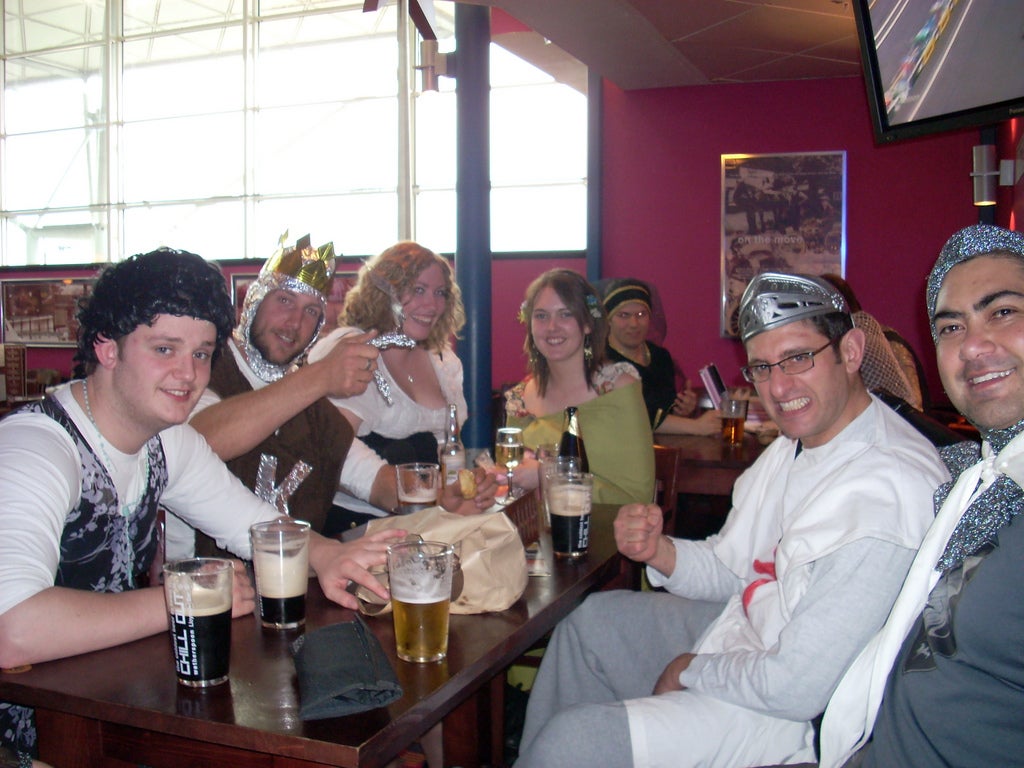Do sports societies at university need to be more inclusive?
Sports societies have a reputation for being debauched - and maybe a little prejudicial. Can they change?

The mere mention of sports societies at university conjures up but a few images: training in mud, heavy drinking socials and lest we forget, the legendary annual ‘tour’. The NUS says over 100,000 students participate in sport at university level - so sports societies are a huge feature of students’ experience. But is there a darker side to sport at university; are sports societies responsible for excluding minorities?
A third (35 per cent) of the LGBT community (lesbian, gay, bisexual and Trans*) students at university participate in team sport. The NUS 2012 report ‘Out in Sport: LGBT Students’ Experiences of Sport’ reveals that one in five respondents were not open about their sexual orientation or gender identity for fear of verbal or physical abuse. 13 per cent of these expressed fear of being ostracised within the team and even being kicked out. For Trans* respondents, the percentage was dramatically higher, with 28 per cent fearing physical abuse.
Perhaps this fear stems from the ‘lad culture’ that dominates sporting societies in university, and the expectations of male team members who are encouraged to demonstrate their masculinity through aggression on the field and during liaisons with the opposite sex. A gay male student, who did not wish to be named, concurs: "I find lad culture completely intimidating and fear being ridiculed".
These experiences are in complete contrast to the equality ideals of university education yet they are still being experienced by members of the LGBT community.
Sky Yarlett, the NUS' LGBT officer says: “While many LGBT students find sports teams to be welcoming it is clear that many are put off by a fear of homophobia or negative past experiences which have created barriers to their involvement. We have seen a welcome increase in the awareness of diversity in sport in recent years but too many LGBT students still feel that it is a world closed off to them.”
Religious discrimination
Exclusion is not restricted to sexual orientation, either. Those who belong to a religious group, for example, Islam, where the consumption of alcohol is prohibited, can often feel alienated from sports societies, which heavily emphasise weekly socials dominated by the consumption of alcohol as part of their bonding culture. Sporting socials also extend to 'tour', a sporting holiday where students descend on European cities such Salou during the Easter vacation to embrace cheap all-you-can-drink deals.
A teetotal third-year student says that she wanted to join the hockey team 'as I had been playing since school'. However, her experience of it at university level was 'not pleasant'.
"Sport was not the main reason why people joined; rather it was mainly centred on drinking until you vomit and trying to sleep with as many of the ‘hockey boys’ as possible. I didn’t stick around for long."
With anecdotes like that, perhaps it is unsurprising that the intense drinking culture of sports societies alienates teetotal members.
The solution
What needs to be done to ensure sports societies are more inclusive? One step would be to make people feel comfortable about being open with their sexuality and gender. A survey respondent, a self-identifying lesbian woman in higher education said: “Make sure they know they are in an inclusive and supportive environment as people won’t come out if they are worried they would then be excluded.”
A further step to make sport more inclusive is to change negative attitudes towards gay and trans* people within schools, something 48 per cent of respondents agreed with. Furthermore, a third of respondents also said that celebrating LGBT role models in sport and would make it more LGBT-friendly. The NUS' own report recommends that sports teams should demonstrate inclusivity and have a zero-tolerance approach to abuse.
There has been some progress to make sporting societies more inclusive in my own university, the University of Kent. Team Kent, the sporting body, and Kent Union, have signed up to a new sports charter aimed at tackling homophobia and transphobia in sport. The charter is divided into four sections and focuses on eradicating discrimination in sport, with one section stating: ‘we believe that everyone should be able to participate in and enjoy sport – whoever they are and whatever their background... We will work together, and individually, to rid sport of homophobia and transphobia’.
Team Kent has since said that it 'won’t just be signing up but implementing processes to train new committees and offer stand out training in order to raise the awareness of the issues and to improve inclusivity across all of our clubs. Sport is for everyone regardless of your gender, ethnicity, race or background and Team Kent are proud to champion the Sports For All ethos.'
Kent Union's vice-president for sport, Matt Harris, welcomes the signing of the charter on campus.
"We believe that our clubs and our students should all get the same fair and equal treatment. By signing the charter we are also conveying a message to our supporters that we will stand up to discrimination, build a more family friendly club and create an environment where there is no room for abuse within each of our sports."
While I welcome the fact that my university is actively challenging institutional exclusion of minorities, will such commitments ensure that university sports clubs become more inclusive in the near future? I am not so sure.
Join our commenting forum
Join thought-provoking conversations, follow other Independent readers and see their replies
0Comments